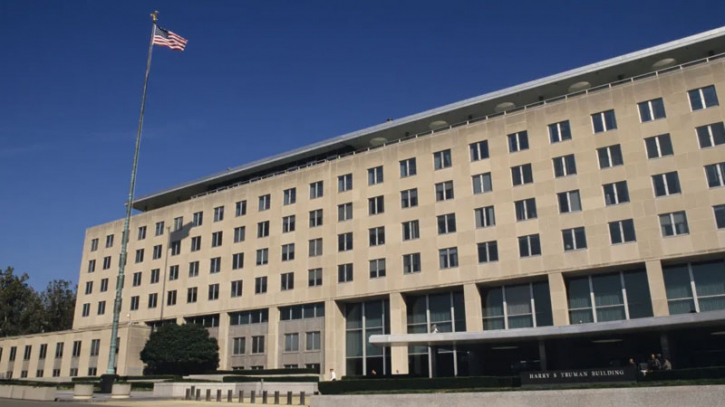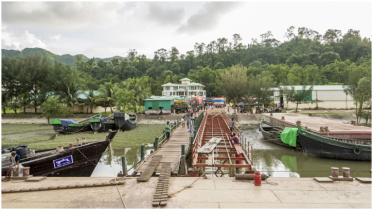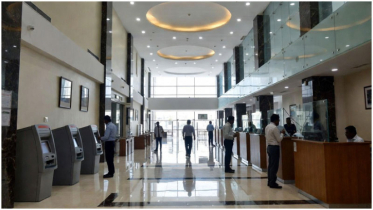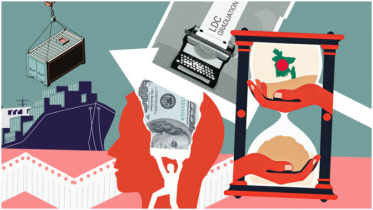Is the US formulating wrong policies to deal with Bangladesh

The United States and Bangladesh have close, long-standing connections that have their roots in history. Friendships between the two have grown over the previous 50 years. nations, which has boosted cooperation in areas including economic development, environmental protection, the war on terrorism, democratic rule of law, and human rights protection. However, the recent acts of the US government and President Joe Biden have strained bilateral ties. The strong ties between the US and Bangladesh have seen considerable turbulence as a result of the United States' bad policy choices.
The policy of penalizing RAB people in 2021 signaled the beginning of the split in US-Bangladesh ties. High-ranking RAB officials were sanctioned by the US without any thought given to the contentious and, most crucially, home issues of Bangladesh. Accusations of election fraud in Bangladesh were made in 2022 by the US ambassador in Dhaka, Hass, which was not his diplomatic duty. But he seldom ever mentioned opposing party political violence, which included petrol bombers, national terrorism, and significant damage in 2014. Derek Chollet, a counselor with the US State Department, expressed his worries about Bangladesh's waning democracy again in February 2023 and cautioned that this would restrict US collaboration with Bangladesh.
Prior to the general elections in May 2023, the new US visa policy was unveiled. US Secretary Antony Blinken made a comment that seemed more like a threat from Washington that it will place visa restrictions on Bangladeshi nationals who interfere with the democratic election process, which is never the responsibility of an outside power. Following the occurrence, six members of Congress submitted a letter to the US President pleading with him to take action to guarantee free and fair elections in Bangladesh. Do these activities adhere to any diplomatic norms? one could inquire. Is Bangladesh a republic governed by the US? Are the citizens of Bangladesh so naive as to not comprehend the geopolitics and diplomacy underlying US actions? Bangladesh's political system and dynamics are challenging. It's nothing new. Why is the US attempting to influence Bangladesh's political landscape?
It is obvious that the US is committing multiple policy blunders against Bangladesh in the name of democracy and human rights. Numerous reasons influence this US choice, but these aspects also have global implications. First, in the aftermath of the Taiwan dispute and the Russia-Ukraine conflict, the US wants Bangladesh to join bloc politics. Bangladesh has consistently followed neutrality in its foreign policy decisions, maintained a non-aligned posture in world politics, and made choices based on multipolarity. Bangladesh and other South Asian countries boycotted twice at the UN while the conflict was still going on to criticize Russia. However, Bangladesh supported Ukraine on the issue of human rights.
Bangladesh has reaffirmed its support for the "One China Policy" even on the Taiwan issue. The US and its Western allies continue to place a high priority on the Taiwan problem, and South Asian allies urge the US to change its stance on Taiwan. Second, the Indo-Pacific area is where the US has the most interests. Therefore, in order to offset China's strong aspirations in this region, it has been forging security partnerships. The US desired Bangladesh to join programs like QUAD or IPS in order to corner China from all angles.
Bangladesh vehemently refused joining any security alliance and gave economic diplomacy top priority for any attempts because of the country's generally non-militaristic foreign policy, which is frequently encouraged by the constitution. Bangladesh released its Indo-Pacific Outlook in December 2022, reiterating the value of a secure and tranquil area while also highlighting China's significance in it.
Third, the US has violated Bangladesh's sovereignty by attempting to influence in its internal affairs. Human rights and democracy are being utilized by it as a tactic to meddle in the Bangladesh's domestic issues put tremendous pressure on the nation to adopt a western-centric foreign policy. Such restrictions have drawn harsh criticism from Bangladeshi residents. When the US backs authoritarian regimes in some regions of the world while promoting democracy and human rights in other others, it raises questions about the consistency and integrity of the country's commitment to democratic principles. Such a paradox runs the risk of undermining the democratic agenda in the United States and raising accusations of unfairness.
Fourth, the US has grown concerned about Bangladesh and China's close economic ties. 99% of Chinese markets are duty-free for Bangladeshi goods. Bangladesh also joined BRI to secure the growth of its infrastructure. China has made almost $39 billion in investments under BRI. The completion of the Bangabandhu Karnaphuli Tunnel and the Padma Multipurpose Bridge has also signaled a strong bilateral connection between these two states. Bangladesh is also keeping a sizeable foreign exchange reserve and avoiding the "debt trap" that the west has warned about. Bangladesh has resorted to paying in Chinese RMB even when it is impossible to do so in US dollars. Bangladesh is requesting China's assistance in mediating the return of the Rohingyas from Myanmar. In each of these situations, the US has been unable to provide Bangladesh a meaningful policy.
Additionally, on May 26, 2023, at a period of heightened tension in relations between the United States and Bangladesh, Sun Weidong, China's vice minister of foreign affairs, paid a three-day visit to Dhaka. Bangladesh is thinking about joining China's Global Development Initiative. The US did not agree with this choice. Fifth, the US is even less optimistic about the developing ties between Russia and Bangladesh. The Rooppur Power nuclear power facility represented enduring friendship. Bangladesh is working toward its objectives of having a developed economy by 2050 and a high income nation by 2041. Energy sustainability is a priority for Bangladesh, and Russia is helping Bangladesh achieve this objective.
The internal component of the US policy error, however, cannot be disregarded. First, the US is concentrating on the opposition parties' narrative, which is frequently unsupported by facts. The assertions of the opposition have received backing among non-resident followers of the Bangladeshi opposition party in the US. Such lobby dynamics are not understood by US leaders, who frequently choose poorly. There is no specific electoral platform or vision for Bangladesh held by the political party that the US is stressing. Those parties, who were in favor of it, were quite appreciative of the notion of enacting visa limitations in Bangladesh. The present administration ran on election platforms such as "Digital Bangladesh" in 2008, "Development" in 2014 and 2018, and "Smart Bangladesh" in 2023.
The US, on the other hand, is not going back in time. When such opposition groups were in power, Bangladesh rose to the top of the corruption ranking, and the government there actively encouraged and even supported terrorism. Even from previous experience, it may be inferred that the US may not gain any specific advantages from the regime change in Bangladesh that it is hoping for. Due to South Asia's strong reliance on the bureaucratic style of foreign policy, the party may support the present policies of the ruling coalition. The opposition party does not have a stance on the Ukraine issue, the Rohingya issue, or the Taiwan issue, which is another error the US is making with this approach. The US's coercive plot and attempt to overthrow the government in Bangladesh might backfire because the people of Bangladesh would not alter their views on China, Russia, or Ukraine.
Second, US policy is slightly skewed since print, electronic, and internet media sources broadcast news stories with deceptive headlines about Bangladesh's democratic process, creating a fictitious justification for US intervention. However, by meddling in internal politics, the US is weakening Bangladesh's democratic process and free and fair elections. The US is losing its reputation as a trustworthy global force with this attitude. Thirdly, the US is increasing its pressure on European countries to meddle in Bangladesh's domestic politics. Bangladesh is concentrating on joining programs like BRICS and expanding its RMG exports, especially to Middle Eastern nations, while the US launches similar measures to isolate Bangladesh. Bangladesh's strategic importance in world politics has increased as a result of its geographic location and expanding economy. Furthermore, the EU is rightfully unwilling to penalize Bangladesh in accordance with US demands.
In conclusion, it should be emphasized that implementing a "selective and humiliating visa policy" for Bangladesh, a friendly partner and an emerging economy with 170 million people, is a terrible policy decision in terms of both diplomacy and international relations in general. From all considerations and historical facts, it is harmful to try to influence Bangladesh's electoral process through immigration policy and a few undiplomatic and forceful actions. Bangladesh is not the same as Egypt, Tunisia, or Ukraine. It is a nation with a rich history of individual sacrifices made during the Liberation, strong leadership provided by the oldest and most well supported ruling political party, and the fastest-growing economy.
Writer: Professor Dr. Mohammad Badruzzaman Bhuiyan is
Treasurer, University of Barishal.
.png)




